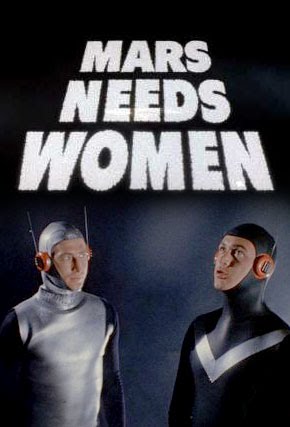
Posted on 03/10/2012 11:28:34 AM PST by SunkenCiv
Researchers at the Kavli Institute for Particle Astrophysics and Cosmology (KIPAC) at Stanford University estimate that "nomad" planets, ejected from their home stellar system and now free-floating through the Milky Way, could outnumber stars by as many as 100,000 to 1. Earlier estimates were more like a handful to 1, though previous studies have only counted unbound planets more massive than Jupiter.
To estimate the number of unbound planets as small as Pluto that could be roaming the galaxy, Louis Strigari (KIPAC), lead author of the study, began with a basic rule of nature: where a few big objects are found, there are many more small, just like a few boulders may be surrounded by thousands of pebbles. Strigari and colleagues calculated the number of unbound planets by extrapolating from the small number detected so far by direct imaging and by gravitational microlensing.
Direct imaging has severe limits because planets are so faint. Microlensing offers more promise. It looks for the characteristic brightening and fading of a background star when an object, even one as wimpy as Pluto, passes nearly in front of it and bends its light slightly by gravity. So far, 24 planet-mass objects have been detected by microlensing -- 14 bound to their parent stars, 10 apparently not. Microlensing offers hope for detection of loose objects large and small even if they are completely dark, and even at great distances across the galaxy.
(Excerpt) Read more at skyandtelescope.com ...
;’)
;’) I’m an accretion denialist.
Quotation is from "Darwin's Ghost" by Steve Jones, page 195
“To us accretionist’s the concept of a loose planet is heresy.
All planets are accreted.
The concept of a Fluke (loose) planet is however interesting”
*************************************************************
Yes, the concept of a Fluke planet is interesting. The theoretical danger of such “loose” planets cannot be overestimated. Are these Fluke planets given free contraceptives to keep them from multiplying? Or would that only reward these loose planets?

Thanks ONV.
http://www.freerepublic.com/focus/chat/1234919/posts?page=10#10
http://www.freerepublic.com/focus/chat/2857296/posts?page=14#14
The ratio of 100,000:1 (rogues to orbiting) would be a tiny fraction of what is needed, but you may have struck on the reason for this hypothesis. :’)
Yes, the concept of a Fluke planet is interesting. The theoretical danger of such “loose” planets cannot be overestimated. Are these Fluke planets given free contraceptives to keep them from multiplying? Or would that only reward these loose planets?
—
Only if someone calls them sluts ...
Might be a good idea to get re-started on some spaceships. Just in case.
I realized long ago that the issue of dark matter is a hypothesis needed to explain the reigning hypothesis of the begining and structure of the universe, unless some as-yet-unidentified phsysicist (or patent clerk with a penchant for math) is going to “solve” the issue by revising the math that demands the existence of dark matter.
Thanks, could make a nice topic as well!
What is the definition of a planet?
I don’t think an object just out there somewhere qualifies.
So I propose “loose planets” be called Vagi.
I’d always assumed there would be plenty of nomads. It may even explain retrograde orbits of some planets.
Good point.
Interstellar space is about 3 Kelvin, right?
Radiant energy from a nomad planet’s interior would be quite small.
On Earth, for instance, I think it’s less than 1% of what the sun delivers.
I doubt the number is that high.
To start with, while there can be a multitude of reasons that a planet went rogue, once they are out of the powerful gravity of a star, most people would assume Newton’s first law would apply, and the rogue would continue in a straight line in whatever its last vector was when it left orbit.
If that was the case, indeed there would be a lot of rogue planets.
However, Newton’s first law would indeed apply, in that, while it was no longer under the control of its star, it would still be under the control of the forces of the galaxy itself.
These forces are formidable in their own right. They have to be to keep the galaxy from flying off in all directions.
This means that in whatever direction the rogue planet was hurled, it would not be in a straight line, but a gradual arc, over time becoming more and more influenced by this continual force.
So the question becomes one of different effects in different directions. That is, is the rogue heading with or opposed to the flow of the galaxy, toward its edge or center, or its “top” or “bottom”, or a vast number of possible vectors between some of these. Also, where in the galaxy it started from.
This gets even more complicated because while, for example, our Sun takes 250 million years to rotate the galaxy, there is also the density wave theory, that the galaxy also has sections of the galactic disk that have a 10-20% greater mass density, which would strongly affect the arc change of a rogue planet when it passed through them.
Eventually, in most cases, the vast majority of rogues would be slung around until they were captured and destroyed, the vast majority in the center of the galaxy. And while it might take a billion years, it would still cull most of them.
Earth generates tremendous amounts of heat internally. It is largely composed of a very hot liquid magma beneath a thin crust. Magma (lava) spews forth anywhere the crust is thin enough to permit it.

That is true but in outer space, with no sun to heat it, that wouldn’t be enough to keep the atmosphere from freezing.
Disclaimer: Opinions posted on Free Republic are those of the individual posters and do not necessarily represent the opinion of Free Republic or its management. All materials posted herein are protected by copyright law and the exemption for fair use of copyrighted works.